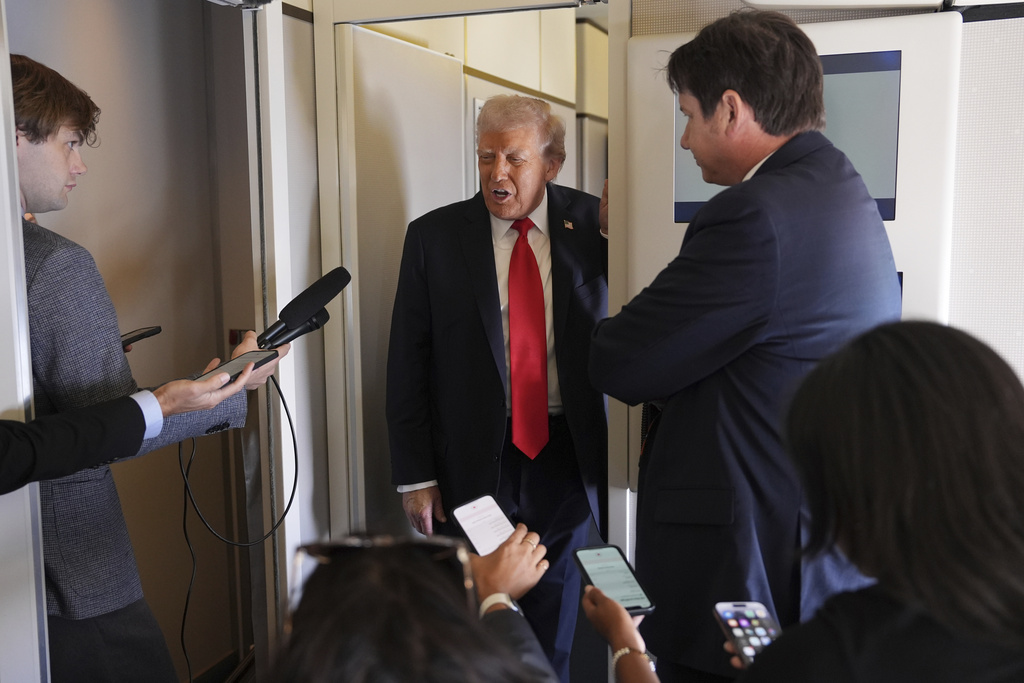In early August, The Guardian featured a nearly 2000-word dissection of President Donald Trump’s “frequently bizarre public appearances,” quoting three mental health experts who said Trump’s conduct raised questions about his cognitive acuity.
The Guardian asked the Trump administration to respond to queries about specific alleged gaffes and to its central thesis about the president’s cognitive decline.
The White House response began with an attack on the newspaper itself: “The Guardian,” said White House spokesperson Liz Huston, “is a left-wing mouthpiece that should be embarrassed to pass off deranged resistance leftists as ‘experts.’” Huston then added a substantive defense of the president: “President Trump’s mental sharpness is second to none and he is working around the clock to secure amazing deals for the American people.”
The Guardian quoted both parts of Huston’s statement – her attack on the newspaper and her defense of Trump’s cognitive abilities – in its story.
The inclusion of the attack was a deliberate decision, said The Guardian’s U.S. editor, Betsy Reed. “An important story for the public is both what has actually happened and what our government is claiming,” Reed said. “If [White House officials], in response to detailed questions, fact-based questions, decide that they’re going to fling insults at the outlet asking those questions, I think that should generally be part of the story.”
Every U.S. president, of course, has complained about press coverage. And the Trump White House is hardly the first to accuse media outlets of bad news judgment – or even bad faith. Nor is it the only administration that has bullied journalists who ask tough questions.
But what’s different about the Trump administration, according to four editors I spoke with, is that insults and derision are not mere throwaway lines at press conferences or elements of behind-the-scenes conversations between journalists and White House officials: Non-substantive criticism of news organizations is often included in formal responses to substantive queries about the administration’s policies and actions.
The standards editor at one national news outlet, who asked to remain anonymous because of the newspaper’s ongoing relationship with the White House, said Trump administration responses to queries typically open with a couple sentences of ad hominem trash-talking, followed by a sentence or two of substance (and then, sometimes, a final round of insults). “The strategy is to discredit all of us,” the editor said.
That combative style has prompted an ethics reckoning for standards editors whose publications routinely report on the Trump White House: Should stories include the administration’s criticism of the outlet itself? Or should publications generally report only the substance of White House responses, editing out insults?
Both approaches are ethically and journalistically justifiable – and both have adherents.
Reed of The Guardian and Tony Cavin, who is NPR’s managing editor for standards and practices, told me that when the White House attacks news organizations for asking substantive questions, that’s inherently newsworthy.
Cavin said the Trump administration’s extraneous attacks signal to Trump supporters that the White House doesn’t take journalists seriously and they shouldn’t either. But by disclosing the insults to readers and listeners, in the context of substantive reporting about the administration, “it helps convey who these people are and what their attitude toward the press is,” Cavin said. “That’s an important part of the story.”
But three other editors told me that when Trump administration responses include non-substantive criticism of their news outlet, they generally leave the insults out of stories.
“When it comes to attacks by the Trump administration on the media and attacks directed at Reuters, we don’t feel obligated to publish the outpouring of generalized hostility,” said Alix Freedman, Reuters’ global head of ethics and standards. “We typically have a strong preference for not making ourselves part of the story.”
Two standards editors at major news organizations agreed that White House insults can distract readers from the significance of articles about the administration’s actions and policies. “A response that is just completely off base, doesn’t answer anything to do with the story, and is just, ‘You guys are terrible’? I don’t see a lot of value to the journalism to include that,” said one of the editors.
“Every story can’t be about the way that they communicate,” said the other. “Everybody knows that without me putting it in every story about inflation or about the ballroom at the White House or whatever.”
Reuters’ Freedman and one of the other standards editors said there can be circumstances when White House attacks on their organizations are newsworthy. When, for instance, Trump said in a social media post in February that the parent company of “radical left Reuters” should repay the U.S. government for a $9 million contract with the U.S. Department of Defense, Reuters ran a story about the response by its parent company, which noted, among other things, that the contract to help the U.S. government ward off cyberattacks was awarded during Trump’s first term.
If White House criticism includes information that is relevant to the substance of a news organization’s query, said the standards editor, it could be newsworthy. Or, on the other hand, if the administration’s only response to a query was to attack the reporter or news organization that asked the question, the publication might tell readers just that.
Ultimately, the other standards editor said, the Trump administration’s actions and policies – such as limiting briefing room access for disfavored publications and rescinding a Biden-era U.S. Justice Department strict limits on subpoenaing reporters – matter more for journalism than insults and criticism.
“Those are things to be worried about,” the editor said. “In the history of journalism in this country, there have been people who yelled at the press all the time and called us names. So I just think we need to focus on what the story really is.”
Our view: The fact that Trump spokespeople routinely insult reporters and their organizations is well-known. While this behavior is newsworthy broadly, it needn’t be highlighted in every story on any topic. We like the idea of using the substantive response in the story and linking to the full response, so that readers, researchers, and media watchers who want all the details can find them.


